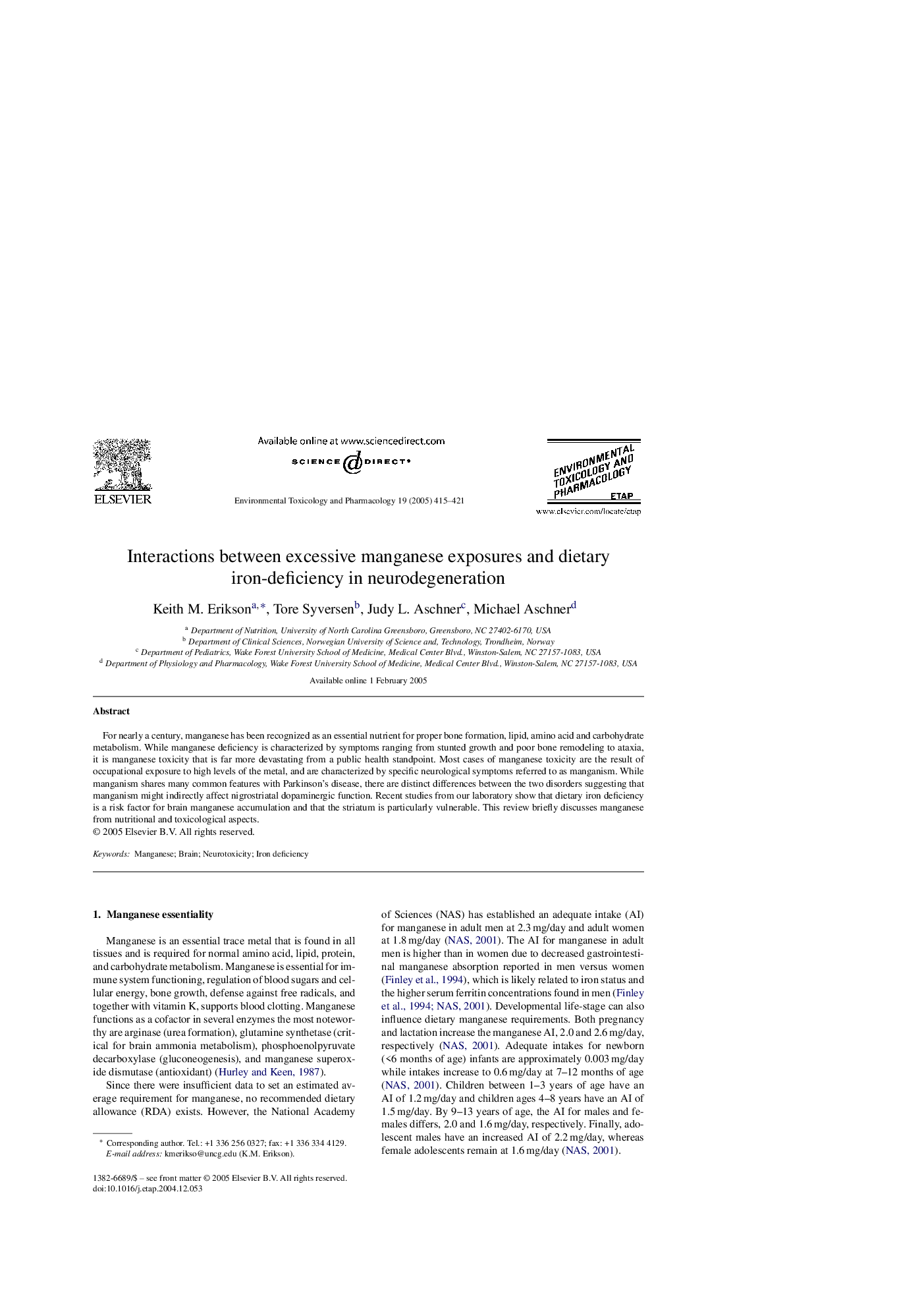| Article ID | Journal | Published Year | Pages | File Type |
|---|---|---|---|---|
| 9030060 | Environmental Toxicology and Pharmacology | 2005 | 7 Pages |
Abstract
For nearly a century, manganese has been recognized as an essential nutrient for proper bone formation, lipid, amino acid and carbohydrate metabolism. While manganese deficiency is characterized by symptoms ranging from stunted growth and poor bone remodeling to ataxia, it is manganese toxicity that is far more devastating from a public health standpoint. Most cases of manganese toxicity are the result of occupational exposure to high levels of the metal, and are characterized by specific neurological symptoms referred to as manganism. While manganism shares many common features with Parkinson's disease, there are distinct differences between the two disorders suggesting that manganism might indirectly affect nigrostriatal dopaminergic function. Recent studies from our laboratory show that dietary iron deficiency is a risk factor for brain manganese accumulation and that the striatum is particularly vulnerable. This review briefly discusses manganese from nutritional and toxicological aspects.
Related Topics
Life Sciences
Environmental Science
Health, Toxicology and Mutagenesis
Authors
Keith M. Erikson, Tore Syversen, Judy L. Aschner, Michael Aschner,
